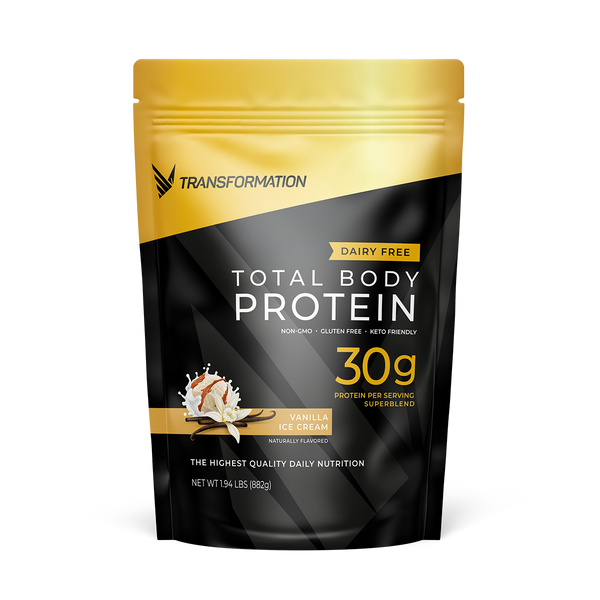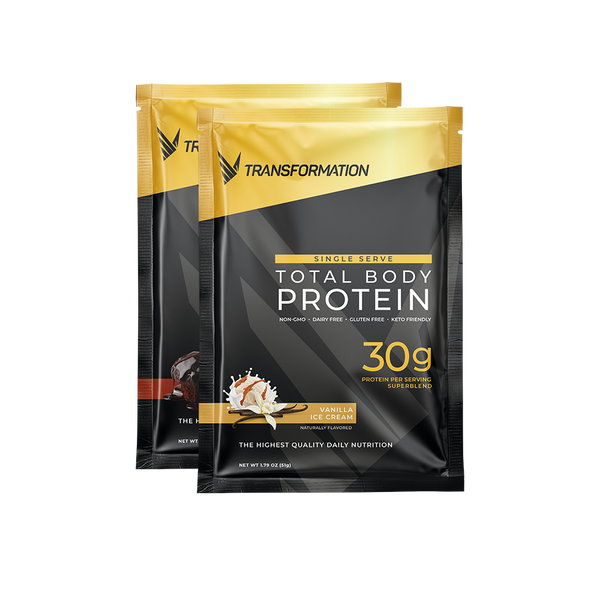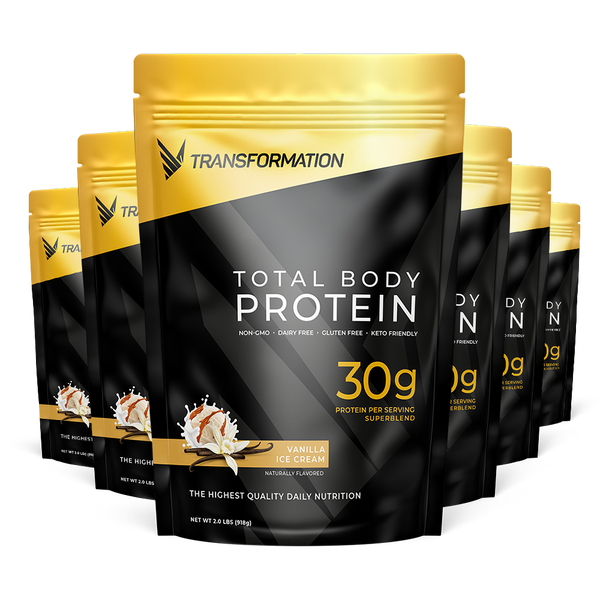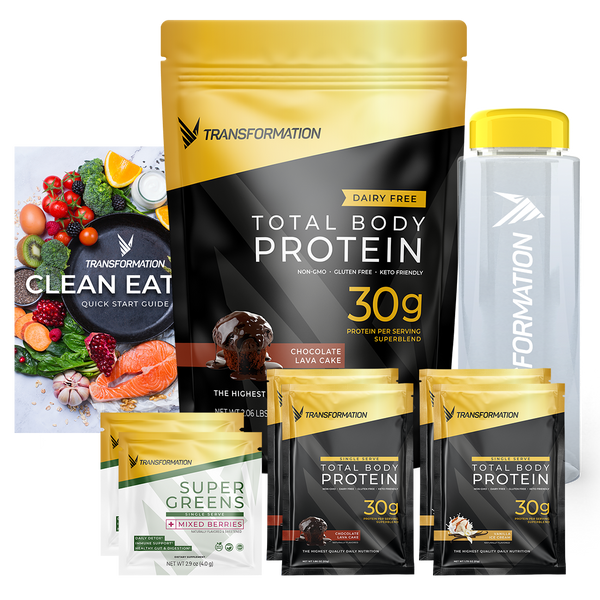
Spirulina 101: How to Choose, Dose, and Enjoy This Superfood
Did you know that just a teaspoon of spirulina packs more protein than an egg, antioxidants to rival berries, and a rainbow of vitamins and minerals that would make Mother Nature proud? This ancient blue-green algae is more than just pond scum—it's a nutritional powerhouse that earns its "superfood" title.
But what makes spirulina a sought-after supplement? In this blog post, we'll guide you through choosing the right type, finding your perfect dose, and incorporating this superfood into your everyday life. Get ready to boost your immunity, energize your workouts, and detoxify your body – all with the help of this incredible natural powerhouse.
Key Takeaways
- Spirulina, a nutrient-dense blue-green algae, is high in protein, essential amino acids, vitamins, and minerals, offering numerous health benefits, including immune support, enhanced exercise performance, and potential detoxification effects.
- Regular spirulina supplementation may help manage health conditions such as high cholesterol, high blood pressure, diabetes, and allergic rhinitis and could possibly have anticancer properties, although more research is necessary to confirm these effects.
- While spirulina is generally considered safe and can be incorporated into diets in various forms, it is crucial to be aware of the potential for contamination, side effects, drug interactions, and the need for caution in individuals with autoimmune disorders or those taking anticoagulant medications.
What is Spirulina?

Spirulina, a type of blue-green algae, is revered as a superfood thanks to its rich composition of nutrients. It’s a treasure trove of:
- Protein
- Essential vitamins
- Minerals
- Carotenoids
- Antioxidants
This potent combination can enhance your nutrient intake and deliver several health benefits, from strengthening your immune system to fighting free radical damage and keeping your energy levels soaring.
Spirulina's Origin and Sources
Spirulina, scientifically known as Arthrospira platensis, thrives in alkaline freshwater and high temperatures. This blue microalga boasts a rich history, dating back over three billion years, and is recognized as one of the world’s oldest foods. Its use as a food source spans several centuries, from the Aztecs of Mexico, who revered it as the ‘Food of the Gods,’ to the Kanembu people of Africa.
Today, spirulina is cultivated worldwide, in regions from Australia and Central America to Africa and Europe.
Nutritional Profile
The nutritional profile of spirulina is nothing short of impressive. It is comprised of:
- Approximately 57-71% protein by weight, which includes all essential amino acids, such as amino acid phenylalanine, making it a highly suitable plant-based protein source
- Vitamins, including E, C, and B6
- Minerals such as iron, calcium, magnesium, and potassium
- Beneficial fats like gamma-linolenic acid (GLA) for heart and joint health
Additionally, spirulina has a moderate amount of carbohydrates, dietary fiber, and beta-carotene.
Health Benefits of Spirulina Supplementation

Going beyond filling nutritional gaps, spirulina acts as a catalyst for overall well-being with a range of wellness perks, including:
- Improved cholesterol and triglyceride levels
- Suppressed oxidation
- Reduced blood pressure
- Lower fasting blood sugar levels
- Significant reductions in body fat percentage
- Reduced waist circumference
By boosting metabolism and curbing cravings, spirulina can play a supportive role in your weight management journey.
Additionally, spirulina exhibits powerful antioxidant and anti-inflammatory qualities, and it may support mental health by treating mood disorders.
Boosting Immune System Function

Spirulina is a potent tool for strengthening your body's natural defenses. Its high chlorophyll content helps to remove toxins from the blood and enhances immune system function.
It contains phycocyanin, an antioxidant known for its anti-inflammatory and immune system support properties.
Spirulina also boosts the production of white blood cells, red blood cells, and antibodies, integral in combating viruses and bacteria.
Regular consumption of spirulina leads to an increased production of cytokines, key communicators in the immune system.
Enhancing Exercise Performance
Regular spirulina intake can enhance muscle endurance thanks to its high protein and antioxidant content. Athletes consuming spirulina have shown significantly higher peak and average power outputs, crucial for explosive activities such as sprinting and hill climbing.
During prolonged exercise, spirulina supplementation has been linked to increased exercise endurance and greater fat oxidation, resulting in more extended performance before the onset of fatigue.
Detoxification and Heavy Metal Removal
Spirulina’s role is not limited to enhancing health; it also focuses on eliminating harmful elements. Spirulina binds to heavy metals and toxins in the body, facilitating their excretion. This has been demonstrated specifically in cases of arsenic poisoning.
The chlorophyll in spirulina has detoxifying properties that help to purge pollutants, while its nutrient content, including gamma-linolenic acid and antioxidants like phycocyanin, plays a significant role in reducing inflammation and protecting against free radical damage during detoxification.
Spirulina for Specific Health Conditions
Spirulina might be beneficial in addressing certain health conditions, including anemia, metabolic syndrome, and allergic rhinitis. For instance, spirulina supplementation may benefit individuals with anemia, as a study suggested improvements in immunosenescence and anemia, particularly in seniors.
A meta-analysis of 18 studies suggests that spirulina can aid in lowering high blood pressure, including diastolic blood pressure, blood sugar, and cholesterol, which are elements of metabolic syndrome.
Individuals with allergic rhinitis saw improvement in symptoms such as nasal discharge, sneezing, nasal congestion, and itching after consuming spirulina.
Diabetes Management

Balancing blood sugar can be a daily challenge for many with diabetes, but spirulina may offer some relief.
Studies have shown that people who took spirulina saw a noticeable drop in their fasting blood glucose levels. While the exact reasons behind this aren't fully understood, it could be linked to spirulina's protein and fiber content or phycocyanin, a beneficial anti-inflammatory compound in the algae.
However, it's important to proceed with caution. Spirulina’s capacity to lower blood sugar levels could dangerously interact with diabetes medications. If you're interested in exploring spirulina as part of your diabetes management plan, discussing it with your doctor first is crucial. They can help assess its potential benefit and ensure it interacts safely with your current medications.
Heart Disease Prevention
This vibrant algae can keep your heart happy! Studies have shown that people who add spirulina to their diet experience positive shifts in their cholesterol levels, with lower "bad" LDL and triglycerides, and a boost in the good HDL kind.
Not only that, spirulina's antioxidant and anti-inflammatory properties offer further support for your heart's health, potentially playing a role in preventing cardiovascular disease. While the research is still developing, it's definitely worth considering this tiny powerhouse as part of a heart-healthy lifestyle.
Potential Cancer-Fighting Properties
There’s exciting news on the cancer front as well. Some studies suggest that spirulina may act as an anticancer agent.
Spirulina has demonstrated the ability to induce apoptosis and inhibit colony formation in breast cancer cell lines. However, it’s important to note that while spirulina has been noted for some anticancer properties, its efficacy in combination with other anticancer agents like gamma-tocotrienol has not been proven to enhance the anticancer effects or prevent metastasis.
How to Add Spirulina into Your Diet

Spirulina is flexible and convenient to use. It can be tailored to individual needs, from usual maintenance to periods of higher demand, such as stress or increased physical activity.
Clinical trials have administered spirulina in doses ranging from one gram per day up to 19 grams per day; however, precise dosage recommendations for each individual may vary.
Finding Your Perfect Dose: From Micro to Mighty:
While spirulina is generally safe, finding the right amount for you is key.
General Recommendations: Start with a low dose, around 3-5 grams per day, and gradually increase it to up to 10 grams based on your individual needs and tolerance.
Listen to Your Body: Pay attention to any side effects like nausea or upset stomach. Adjust your dose accordingly or consult a healthcare professional if needed.
Health Goals & Activity Level: You might require a higher dosage if you're an athlete or have specific health goals. Consult a nutritionist or healthcare professional for personalized guidance.
Spirulina can be consumed flexibly throughout the day, either with meals, before or after workouts, or anytime when energy support is needed.
Forms of Spirulina
With spirulina available in multiple forms, integrating it into your regular diet becomes effortless. The most common forms include:
- powder
- capsules
- tablets
- liquid
Precautions and Potential Side Effects
Similar to any dietary supplement, it’s important to be aware of the possible side effects and precautions related to spirulina consumption. These include severe allergic reactions and potential drug interactions. Moreover, pregnant or nursing individuals should avoid spirulina due to the lack of safety data.
Spirulina can exacerbate autoimmune conditions by boosting immune system elements like NK cells. Due to spirulina's anticoagulant properties, it can increase bleeding and bruising risks, particularly in individuals with bleeding disorders or those on blood thinner medications.
Contamination Concerns
Selecting spirulina products of good quality is essential to prevent contamination. Spirulina can be contaminated with various harmful substances such as:
- lead
- other heavy metals
- toxins
- bacteria
All of these pose significant health risks if consumed.
Opt for high-quality spirulina products with third-party certifications to ensure product safety and purity.
Possible Drug Interactions
Spirulina has been noted to have potential interactions with several types of medications, particularly blood thinners due to its anticoagulant effects. If you’re on blood thinning medications, be cautious about consuming spirulina, as it could amplify the effects of your medication and lead to possible unsafe conditions.
The immunostimulatory properties of spirulina can clash with immunosuppressive drugs, which could worsen autoimmune conditions or alter the intended effects of these medications.
Allergy and Sensitivity Considerations
Allergy and sensitivity considerations should be taken into account when using spirulina. Cases of allergy to spirulina have been reported, with symptoms including generalized itching, shortness of breath, and urticaria. There may be a correlation between birch pollen allergy and sensitivity to spirulina.
Individuals with autoimmune diseases, pregnant women, children, and those with allergies are advised to consult a healthcare professional before using spirulina. To manage potential side effects such as nausea, dizziness, or headaches, starting with a lower dose of spirulina and gradually increasing it is advised.
Spirulina vs. Chlorella: A Comparison

Though spirulina is indeed amazing, it’s not the sole super algae available. Meet chlorella, another species of algae with its own unique properties and benefits. Though different, spirulina and chlorella both serve as green algae supplements and share some nutritional similarities.
Nutritional Differences
Despite their similar appearances, chlorella and spirulina have distinct nutritional profiles. Chlorella is higher in vitamin A, iron, magnesium, phosphorus, and zinc compared to spirulina.
Spirulina and chlorella have different nutritional profiles. Here are some key differences:
- Spirulina contains more copper and a slightly higher amount of vitamin B1 (thiamin).
- Chlorella contains more omega-3 fatty acids.
- Spirulina contains a higher proportion of omega-6 fatty acids.
Health Benefits Comparison
Both chlorella and spirulina offer a wealth of health benefits. Here are some key points to consider:
- Both are recognized as excellent sources of plant-based protein
- Both can contribute to maintaining normal heart function
- Chlorella specifically may have higher quantities of certain beneficial fats when compared to spirulina
Summary
In conclusion, spirulina is a nutrient powerhouse that offers a wide range of health benefits. From boosting immune function and enhancing exercise performance to aiding in detoxification and benefiting specific health conditions, spirulina proves to be a versatile superfood. With various forms available, it’s easy to incorporate spirulina into your diet.
However, it’s essential to choose high-quality spirulina products and be aware of potential side effects and precautions. As with any dietary supplement, always consult a healthcare professional before starting spirulina supplementation.
Frequently Asked Questions
Can spirulina have side effects?
While spirulina is generally considered safe, there are potential side effects such as nausea, insomnia, headaches, allergic reactions, and contamination with harmful compounds. It's important to stop use and seek medical advice if experiencing any adverse effects.
Is it safe to take spirulina every day?
It is generally safe to take spirulina every day, with a recommended daily dose between 1 and 10 grams based on current research. It is best to consult with a doctor for personalized advice on frequency and dosage.
What is spirulina famous for?
Spirulina is famous for its immune-boosting properties, including its ability to increase the production of antibodies and infection-fighting proteins, as well as its potential anti-inflammatory and anticancer properties. NASA even used it as a dietary supplement for astronauts.
What foods contain spirulina?
You can find spirulina in commercial dietary supplements, as well as in health food snacks and drinks. It is commonly available as a deep green-colored powder or tablet.
What does spirulina do for the body?
Spirulina may improve immunity, cholesterol levels, blood pressure, and blood sugar levels, making it beneficial for overall health and wellness. It is considered highly nutritious and has been shown to have various health benefits.
Beyond Spirulina: Level Up Your Wellness with Our Super Greens Blend:
Now that you have the tools to choose, dose, and enjoy spirulina, there's no excuse not to give this superfood a try!
Our signature all-in-one alkalizing Super Greens + Berries blend takes superfoods to the next level. We hand-selected a potent combination of spirulina, alfalfa, chlorella, and other nourishing greens and berries to deliver:
Enhanced Immune Support: Protect your body with a daily dose of immune-boosting antioxidants and nutrients.
Optimized Gut Health: Support your digestive system with prebiotics and probiotics, improving nutrient absorption.
Natural Energy Recharge: Feel the difference with a sustained energy boost, thanks to spirulina's protein and iron content.
Faster Recovery: Assist your post-workout recovery with the anti-inflammatory properties of our Super Greens blend.
Experiment with different forms and recipes, listen to your body and discover how spirulina can enhance your health and well-being.
Always consult with a healthcare professional before adding any new supplement to your routine.





